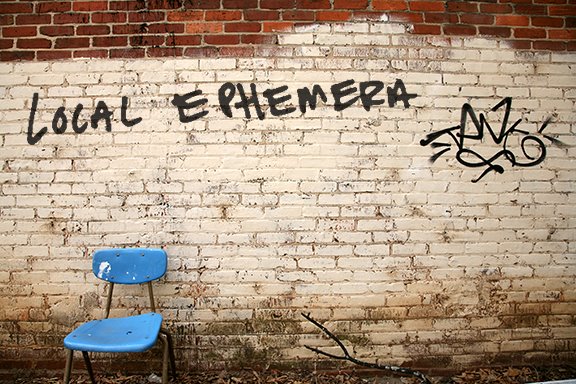 Lately I have been purging my apartment and studio, trying to get rid of all those failed pieces of art that seem to collect on walls and in corners. But each time I cram a sculpture into a garbage bin, I'm hit with the same contrasting emotions: On one hand it feels liberating, something taken off my shoulders, an embarrassment disposed off, the zest of spring cleaning. On the other hand, there is something vaguely sacrilegious about it, to have put so much energy into creating something, to have placed enough intellectual and aesthetic faith in its gestation that it actually materialized - only to discard it with that morning's empty cereal box.
Lately I have been purging my apartment and studio, trying to get rid of all those failed pieces of art that seem to collect on walls and in corners. But each time I cram a sculpture into a garbage bin, I'm hit with the same contrasting emotions: On one hand it feels liberating, something taken off my shoulders, an embarrassment disposed off, the zest of spring cleaning. On the other hand, there is something vaguely sacrilegious about it, to have put so much energy into creating something, to have placed enough intellectual and aesthetic faith in its gestation that it actually materialized - only to discard it with that morning's empty cereal box.The conflicting emotions always leave me thinking, as I walk away from the dumpsters, about the value of art. If someone had stumbled into my studio, spotted this artwork and offered me cash for it, then it would not currently be on its way to a city dump, it would be regarded as "art" hanging on the wall of someones home. And so who is making the value judgement on my art? Myself, the artist, or the potential buyer, the market? Is my appreciation for uncluttered spaces and a dislike for looking at my own work for five straight years enough to determine what is precious and what is disposable? All art is disposable in the sense that it isn't a crime to throw it way, yet suddenly something given the prestigious label of "painting" is reduced to it's materials of wood and paint. The question is no longer, "what is this work saying?" and instead "is this recyclable?"
This leads to questioning my original purpose, or need, in making the artwork. If I am capable of getting a thrill from destroying it, then giving my work an eternal life on a museum wall doesn't seem to be what drove me to make it in the first place. As many times as I may consider my artwork trash, it does not stamp out my desire to create something new. In a way the destroying of work is essential to the creation of more. An overpopulated studio doesn't breed new work or ideas (at least for me). I can regard each trashed item as a test-run, the time spent making it as a learning experience. If it's all experimentation though, who makes the judgement call on what should be saved? Me? Give me another five years and my opinion is sure to change.

2 comments:
i go through the same thing with old paintings that tend to collect in the corners. i find myself painting over them and starting all over. there's something satisfying in covering up your old work with something new.
in five years, you'll wish you had that painting because you will realize there was something there that you didn't see before. and then you'll forget about it because you'll have a whole new pile. i went through a "white phase" in grad school and the work was completely unappreciated so i threw most of it out when it didn't sell. now i realize i was striving for something i thought to be very genuine in my work but it felt fake because no one else got it. you pose alot of great questions and quandries here, and i'm glad you don't try to answer them. your work is the answer.
Post a Comment